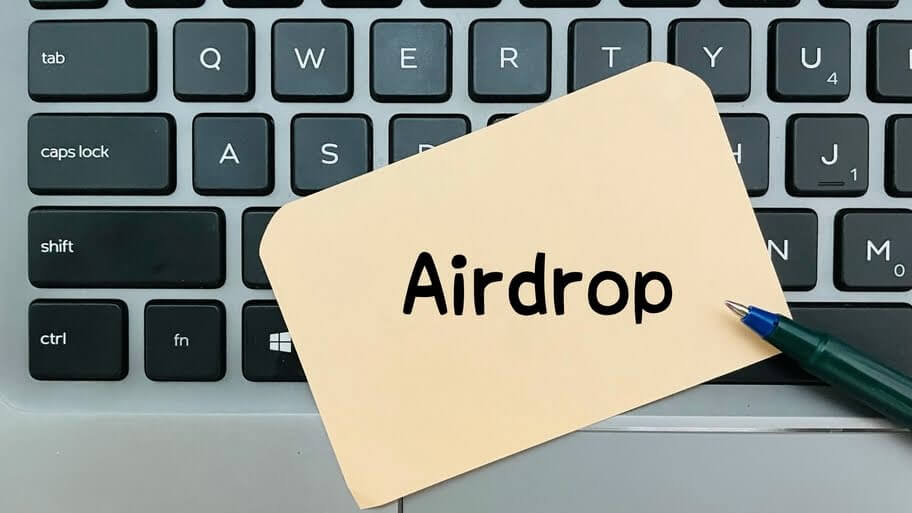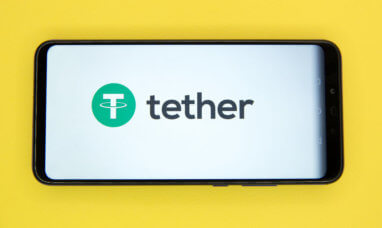Cryptocurrency airdrops have become so popular in the crypto industry, that in several countries there has been a lot of debate on whether to implement crypto airdrop taxes or not. But what exactly is a cryptocurrency airdrop?
Cryptocurrency is the realization of a financial system devoid of intermediaries, one that is owned by its users. In the early phases of a new cryptocurrency project, it might be challenging to persuade people to use or buy the coin. A lack of publicity, following, or trade volume necessitates new projects to come up with novel strategies of promoting their tokens. One popular technique is to use airdrops.
What Is a Cryptocurrency Airdrop?
Cryptocurrency airdrops are promotional methods that may result in the delivery of free tokens to participants’ wallet addresses. With airdrop, small quantities of the new virtual currency are delivered to the wallets of active members of the crypto community for free or in exchange for a small service, such as joining the companies newsletter group and retweeting their Twitter posts. It is a method of distributing cryptocurrency in smaller amounts to a large number of digital wallets, and is frequently done in conjunction with the introduction of a new cryptocurrency or the split of an existing crypto token.
Historically, cryptocurrency projects have used airdrops as a marketing tool to encourage platform usage. As part of their first offering, new crypto start-ups can airdrop cryptos into users’ wallets as a reward for supporting the brand and accomplishing simple tasks to support the new coin. The purpose of an airdrop is to distribute newly minted tokens to hundreds or thousands of different wallet addresses in the expectation that receivers would be more receptive to the accompanying project. Simply put, cryptocurrency airdrops are broad marketing initiatives designed to create awareness for new crypto projects.
How Did the Crypto Airdrop Come to Be?
In February 2014, when the first wave of “altcoins” was formed by the rising interest in Bitcoin, Iceland used a fresh idea for broader crypto acceptance and adoption. Auroracoin was being developed by a developer under the pseudonym of Baldur Friggjar Odinsson, who pledged to send 31.8 of the coins to each Icelander listed on the country’s national register of citizens. This, he hoped, could help his 330,000 compatriots escape six years of post economic crisis woes. From this moment came the birth of the “crypto airdrop” concept.
Are Crypto Airdrops Safe?
Regardless of their popularity, cryptocurrency airdrops are not always as risk-free as they may appear. Because receivers obtain “free money” in their wallets, airdrops may be nothing more than pump-and-dump operations. The scheme goes as follows: the developer creates a token with the expectation that enough excitement will surround it to be listed on an exchange. However, once the creator’s tokens begin trading, the inventor sells many of them, causing the price to plummet.
Another possible avenue of attack is the aptly named dusting assault. A fraudster will airdrop a negligible quantity of Bitcoin to an unknowing person to compromise their privacy. The attacker will then monitor the wallet tokens’ transaction behavior in order to de-anonymize the individual or entity controlling the wallet.
Crypto Airdrop Taxes
While it may appear to be a free cryptocurrency, several national tax authorities, including the US IRS, Australia’s ATO, and Canada’s CRA, now consider airdropped coins and tokens to be ordinary income and so subject to income tax. Anything you get via an airdrop must be treated as ordinary income in the amount it was worth when you got it. When you sell the coin, you will be obliged to pay capital gains tax on the difference between the coin’s worth when you obtained it (the cost base) and the coin’s value at the time of sale.
Often, an airdropped token will have a very low market value. Crypto investors and their advisers must discover the source of all their existing coins to determine whether any outstanding tax liabilities exist. The revenue generated by crypto airdrops is also taxable. In many jurisdictions, it is now applicable so be careful you are not breaking any tax laws when receiving or selling coins that have been airdropped to your wallet.
What Is the Process of Airdrops?
New blockchain-based businesses promote airdrops by distributing free coins for their virtual currency on their websites or social media accounts, frequently using virtual currency PPT presentations to provide complete information about the initiatives. After creating awareness, the project sends the coin or tokens to existing cryptocurrency wallet holders.
Pros and Cons of Airdrops
Here are some of the advantages of participating in an airdrop;
The Crypto world is appealing and full of potential, but on the other hand, it’s also unregulated and unsafe for stable investments, as the prices are volatile. With an airdrop, you don’t have to commit money or give to a project that may be a hoax. The coins you receive are basically completely free, and everyone likes freebies.
Airdrops are nearly entirely free in the crypto world. Crypto airdrops are a risk-free way to make money with cryptocurrencies, so long as you do your research and ensure it is not a scam. Airdrops aren’t a quick method to earn money but, over time, the same coins that were worth nearly nothing during the token distribution phase might be worth hundreds of dollars in the coming years.
Examples of Airdrops
An example of an airdrop is ParaSwap (PSP), a decentralized exchange aggregator that distributed 150 million PSP tokens to 20,000 early users of the network. According to a blog post on its token distribution algorithm, users must have used ParaSwap at least six times in the past six months and have a specified minimum token balance to qualify for the airdrop. According to Cointelegraph, another recent example of such airdrops is the decentralized exchange dYdX (DYDX), which delivered a huge airdrop worth more than $100,000 to its most active customers in September.
Final Thoughts
Airdrops help crypto startups to create awareness and market their projects strategically. While this is a good way to get free coins, remember that there are some strings attached and that you need to keep an eye out for cryptocurrency scams. If you look you can find the best crypto airdrop apps out there that could guide users on upcoming airdrops. Just be informed and pick the right projects to get involved in.
Featured Image: Twenty20








